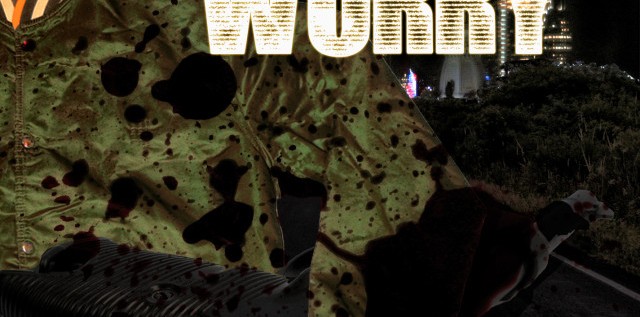Who:?!?!? – James “Jim” Murdoch

Chief executive officer, British Sky Broadcasting Group
Nationality: British.
Born: December 13, 1972, in London, United Kingdom.
Education: Attended Harvard University.
Family: Son of Rupert (businessman) and Anna Maria Torv Murdoch; married Kathryn Hufschmid (marketing executive); children: one.
Career: Rawkus Entertainment, 1995–1998, executive; News Corporation, 1998–2000, executive and manager of Web operations; Star TV, 2000, chairman and chief executive officer; British Sky Broadcasting Group, 2003–, chief executive officer.
Address: British Sky Broadcasting, Grant Way, Isleworth, United Kingdom TW7 5QD; http://www.sky.com.
■ At the age of 30, James Murdoch was much younger than most of his counterparts when he became chief executive officer of British Sky Broadcasting Group (BSkyB) in 2003. Never before had someone so young run a FTSE 100 company. The move was not without controversy. Shareholders of BSkyB, Britain’s dominant television service, questioned Murdoch’s qualifications and complained that he received the position only because his father was chairman of the company. Executives who worked with Murdoch, however, called him an instinctive leader—just like his father.
Murdoch was the son of Rupert Murdoch, chief executive of News Corporation, a $14 billion media empire that included both newspaper and television companies across North America, Europe, and Asia, including the Times of London. Other News Corporation companies included Fox Network, TV Guide , HarperCollins book publishers, and 20th Century Fox.
SHADOW OF FATHER’S MEDIA CORPORATION
Murdoch was born on December 13, 1972, in London, the oldest of three children of Rupert and Anna Torv Murdoch.

.
He was reared mostly in New York City, where his father had offices as owner of the New York Post . From the beginning, the family business was woven into the fabric of James Murdoch’s life. As Murdoch grew, so did his father’s media empire. Business talk dominated dinner table conversations, and the elder Murdoch’s competitiveness shined through, even when he played games with his children.
At the age of 15, Murdoch landed an internship at the Sydney Mirror , the once-struggling paper his father had bought and turned around. Murdoch gained notoriety at the paper by falling asleep covering a press conference. A photographer from the rival Sydney Morning Herald snapped some pictures, and Murdoch found himself splashed across its pages. In the mid-1990s, after graduating from the New York City prep school Horace Mann, Murdoch headed to Harvard University to study film and history. At Harvard, Murdoch made his mark as a cartoonist for the Harvard Lampoon .
RAWKUS ENTERTAINMENT
Unlike his siblings, who graduated from college and went to work for the family business, Murdoch was determined to prove his own worth in his own way. In 1995 he dropped out of college to form an independent record label with two high-school friends. The Manhattan-based label, called Rawkus Entertainment, signed such bands as the hip-hop Rose Family and the glam-metal band Motor Baby. Further shunning his father’s straitlaced corporate world, Murdoch got tattoos, died his scraggly hair blond, and pierced his eyebrow. Rawkus Entertainment was moderately successful, and it proved a good training ground for Murdoch. “I don’t want to be cocky, but we’re fast learners,” Murdoch remarked to the New Yorker . “You learn pretty quickly when you’re spending money and not getting results” (September 16, 1996).
By 1998 Rawkus was turning a $2.5 million annual profit and was bought by Rupert Murdoch and absorbed into News Corporation. James Murdoch had become part of the family business and was overseeing News Corporation’s tiny music division. He then was put in charge of News Corporation’s Web operations. He persuaded his father to invest in a number of Internet ventures, which eventually suffered heavy losses. At one point, News Corporation took a $300 million write-off for dot-com investments made at James Murdoch’s request.
STAR TV
Although Murdoch had lost money for his father, Rupert Murdoch had faith in his son and in 2000 named Murdoch chairman and chief executive officer of Star TV, News Corporation’s Asian division. When James Murdoch arrived in Hong Kong to take over operations, he had to work hard to earn the respect of his colleagues. Trying to fit in with his coworkers, Murdoch wore simple slacks and long-sleeved shirts to work, forgoing a tie.
Star TV, the world’s largest satellite network, had become a part of News Corporation in 1995. When James Murdoch took over, its programming was being broadcast in 53 Asian countries in seven languages. In China and India alone, Star TV produced 16,000 hours of original programming. But it had yet to turn a profit, losing approximately £100 million a year. Murdoch changed that. He streamlined operations and focused on producing local programming for local markets, concentrating his efforts on India and China, Asia’s largest markets. Star TV’s Hindi version of Who Wants to Be a Millionaire became so popular advertisers could no longer ignore the broadcaster’s impact. In 2002 Star TV drew its first profit.
BRITISH SKY BROADCASTING
Although Murdoch was successful with Star TV, investors grumbled in 2003 when he was appointed chief executive of the British-based digital television network BSkyB, which operated more than 400 channels of sports, movies, entertainment, and news. His salary stood at $2.4 million a year for three years. Murdoch was ready for the job and prepared to approach the new challenge just as he had the past one. His first task was to win over his colleagues. As Murdoch told Ad-AgeGlobal , “first and foremost, if you’re in a new organization, you have to earn people’s respect and loyalty…. If they have hang-ups about who you are, that’s really not my concern. I’m more concerned with getting the team together and driving it forward.”
Murdoch succeeded in his career by taking a less top-down approach than other executives. He leaned on his capable team of managers, letting them do their work without trying to manage every detail. He also relied on his father, speaking to him nearly every day. “This is a very smart executive,” Murdoch’s former colleague Matt Jacobson told Valerie Block of Crain’s New York Business . “Even if his last name didn’t start with an M, I’d have a lot of respect for him” (August 10, 1998). When Murdoch took over BSkyB in 2003, all eyes were watching. Before Murdoch took such a high-profile job in the family business, analysts believed his older brother, Lachlan, would succeed their father at the helm of News Corporation. Opinions changed after James Murdoch took over BSkyB.
See also entry on British Sky Broadcasting Group plc in International Directory of Company Histories .
sources for further information
Block, Valerie, “The Dutiful Son: Spare Murdoch Heir, a High-Tech Kid, Waits Patiently to Rotate into New Post,” Crain’s New York Business , August 10, 1998.
Fabrikant, Geraldine, and Mark Landler, “Just Which Murdoch Will Become the Next Rupert?” New York Times , October 8, 2000.
Gibson, Owen, “Ivy League to Isleworth: ‘My Relationship with the Chairman Will Be Like That of Any Chief Executive,'” Guardian , November 10, 2003.
“A Grass-Roots Murdoch,” New Yorker , September 16, 1996, p. 44.
“Like Father, Like Son,” Economist , November 8, 2003, p. 64.
Normandy, Madden, “James Murdoch,” Advertising Age , January 26, 2004.
“Young Murdoch’s Asian Adventure,” AdAgeGlobal , May 2001, p. 30.
—Lisa Frick




